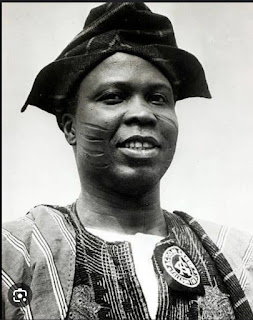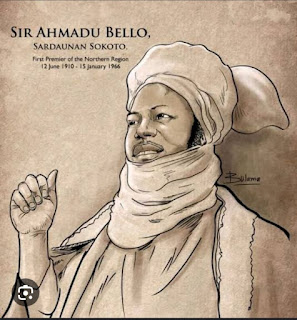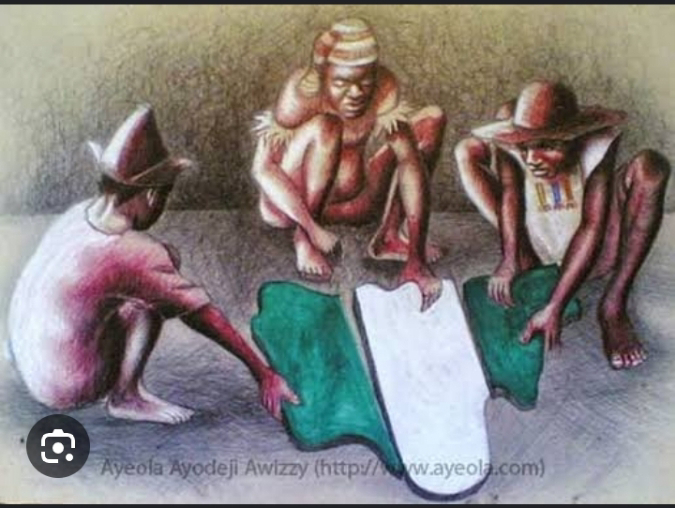The 1964/65 General Elections, The First Elections Held In An Independent Nigeria
1960 Independence was a proud moment for Nigerians, but the political events that followed will not be remembered with so much joy. 1964-1965 would go down the annals of Nigerian history as the most turbulent and politically explosive years in the history of the country. The Federal elections of 1964, was an electoral battle between the Nigerian National Alliance and the United Progressive Grand Alliance.
The 1964 federal election was the third held in Nigeria, coming after those of 1954 and 1959. At the conclusion of the two elections the NPC and NCNC had formed a coalition government however the alliance between the two parties was mainly based on political needs rather than mutual ideology. For instance the NPC and NCNC held contrasting views on pan-africanism, while the former was opposed to the creation of a Supranational continental government and wanted a policy of alignment with Western capitalist. The latter wanted the creation of a United States of Africa, the formation of a continental government and a policy of non-alignment with the West.
Party politics in Nigeria was regionalized with the NPC, NCNC, and AG each holding the North, South and West respectively. Due to this the NPC was was the Senior party in the coalition between the NPC and NCNC as the Northern region's population was considerably larger than that of the South but following the disagreement between the parties the NCNC sought to use the 1963 census to gain the upper hand over their ally, but they were disappointed as results came out. The official figures were; Northern Region 22.5m; Eastern Region 12.3m and Western Region 10.5m. The census was cancelled as their was intense accusations of malpractice in the census. The census dispute intensified inter-regional rivalry and was followed by violent inter-tribal recrimination which in turn resulted in the breakdown of the NPC and NCNC alliance and precipitated new political alignments. While all this was going on the AG was also facing it's own tribulations, as the two leaders of the party Obafemi Awolowo and Samuel Akintola (the then premier of western region) also locked horns. The AG inter-party crisis ended with Awolowo in prison charged with felony, Akintola breaking away and forming a new party, (Nigerian National Democratic Party) and the Western region termed "theatre of war" left in a state of emergency. This was the state of the country which preceded the 1964/65 elections.
The NPC/NCNC Alliance having broken down the NCNC turned to the third major political party in Nigeria- the western region based Action Group, the Awolowo led faction- for an alliance. This alliance formed on 3rd June 1964 also included other parties namely; Northern Progressive Front, Kano People's Party, Northern Elements Progressive Union, United Middle Belts Congress and Zamfara Commoners Party. The alliance was christened United Progressive Grand Alliance (UPGA) though S.L Akintola came up with his own rather hilarious interpretation "Useless People's Godless Alliance".
The NPC refuse to be left behind, on 20th August 1964 they formed the Nigerian National Alliance (NNA) termed "non-nationalist adventurers" by one Samuel Aluko ( an AG leader and a renowned professor of economics at the University of ibadan). The NNA Alliance consisted of the following parties; Akintola's Nigerian National Democratic Party, Midwest Democratic Front, Dynamic Party, Niger Delta Congress, Lagos State United Front and Republican Party. These two alliances fiercely competed in the 1964 elections which turned out to be rather unpleasant and also served as fuel for the upcoming fire than burned the country in 1966.
The UPGA/NNA rivalry was the most striking aspect of the 1964 elections. Among others things, both alliances utilized the power of incumbency to the fullest. For example apart from arresting, detaining and jailing some members of the UPGA, the NNA deliberately prevented some candidates of the former from filing nomination papers and declared several of its candidates unopposed even though they were not. while the NNA carried on, the UPGA were also not left behind as they spared no effort foul or fair in brutalizing members of the NNA and using state machinery to strengthen its electoral position particularly in Eastern and Midwestern Nigeria where UPGA's senior partner the NCNC held the reins of government.
In the circumstances discussed above the UPGA felt that it would be impossible to conduct an election favorable to it. Consequently it called on the president (DR. Azikwe) to dismiss the Federal Government and appoint an equal number of leaders from the two alliances to administer the federation until the country's political climate is favourable for elections. The two senior political leaders and also leaders of the two alliances, Azikiwe and Balewa could not come up with a solution for the crisis therefore the elections were held as planned. The UPGA decided to boycott the elections in the west effectively handing the government to the NNA.



Comments
Post a Comment